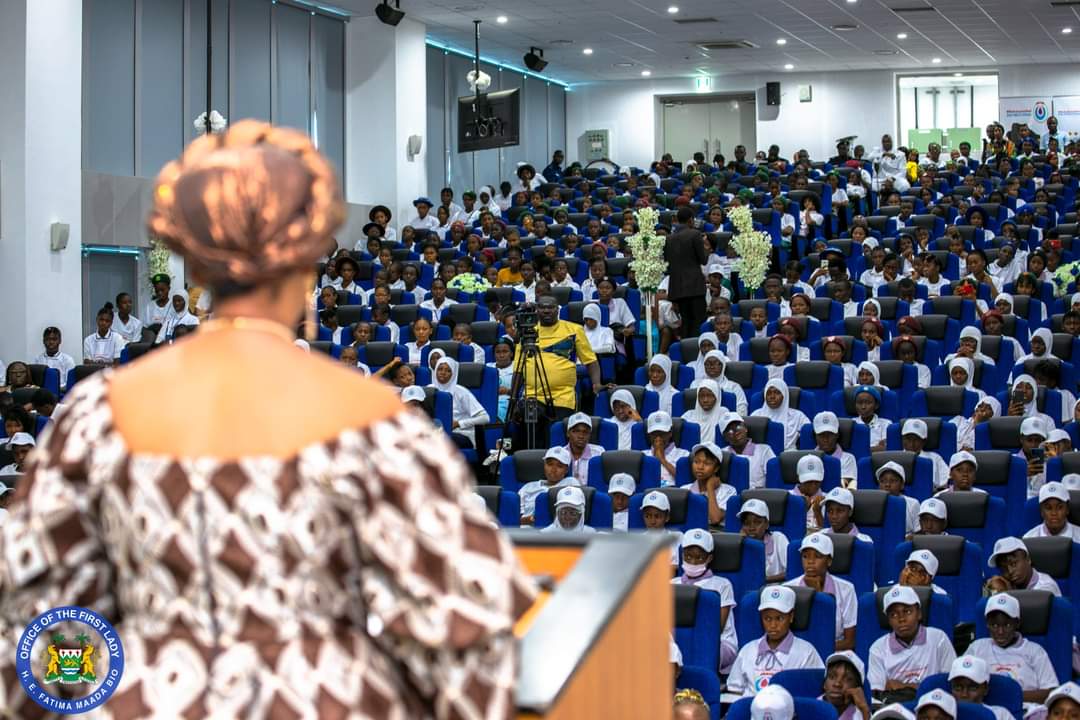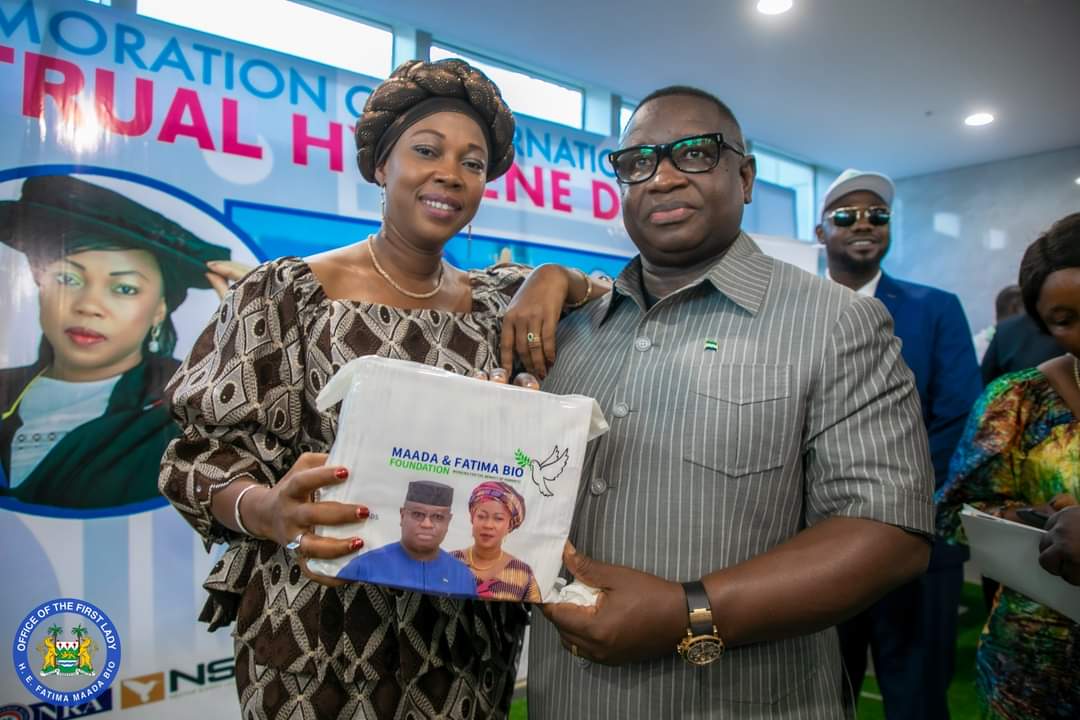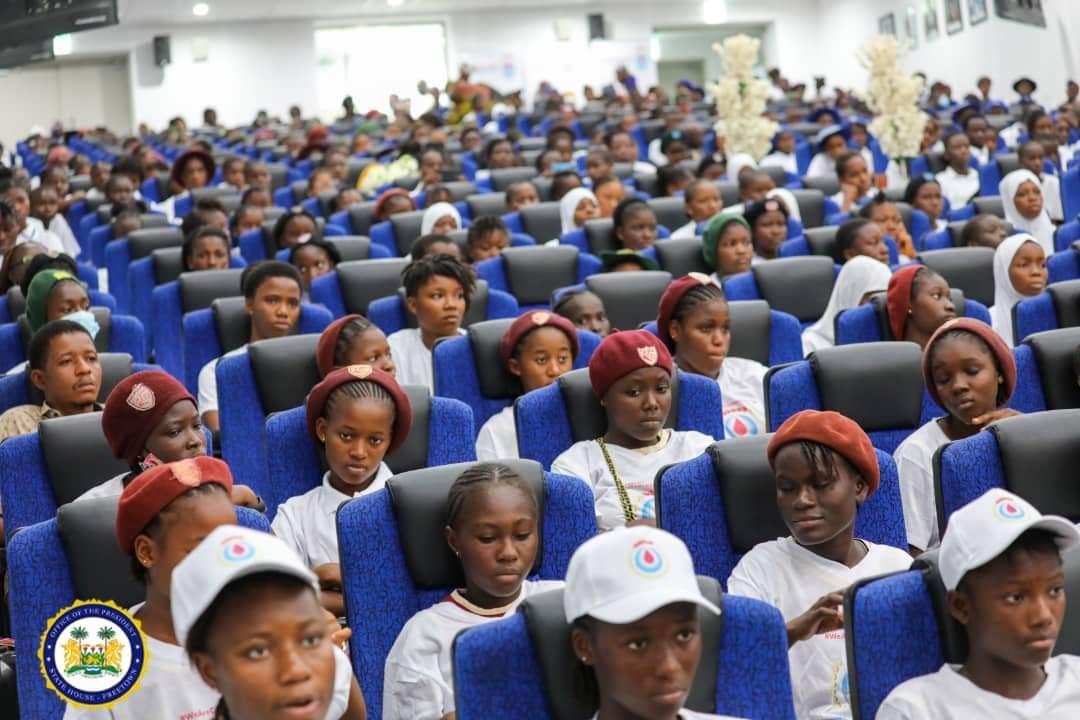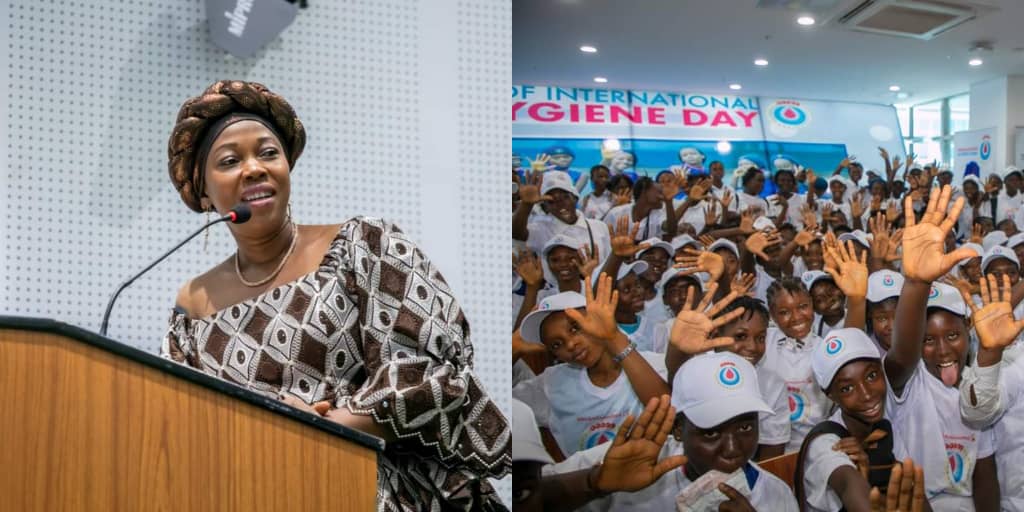In Commemorate of the International Menstrual Hygiene Day on Thursday 2 June 2022, the First Lady of Sierra Leone, Fatima Bio launched the 2022 free sanitary pads distribution for school going girls in the country.
The First Lady was joined by President Julius Maada Bio at the launching at Freetown City Council Auditorium in Freetown.
First Lady Fatima Bio, who introduced his husband as the keynote speaker, expressed gratitude to President Bio for providing the space and platform for women to be part of the development process in the country. She thanked him for being selfless and for being a true father to the children of Sierra Leone, by providing free sanitary pads and the free quality education.
She went on to admonish the boys to allow the girls to leave up to their full potential, to be educated and be free and to feel safe in their environments and thanked donor partners for providing the sanitary pads for the girls.

In his statement, President Dr Julius Maada Bio said he was truly pleased to join the First Lady, development partners, and fellow Sierra Leoneans, to commemorate the all-important International Menstrual Hygiene Day, adding that that was another historic opportunity to reflect on successes thus far and make firm commitments to the campaign they started together some years ago.
“Clearly, we need more action on menstrual health. We should intensify public education on menstrual hygiene at schools and at the community levels. The objective is to change misinformation and negative attitudes toward periods. As previous speakers have indicated, fear, stigma, and shame associated with periods should not stop girls from going to school, from engaging in vocational education, from engaging in sports, and participating fully in public spaces and social activities.
“We have lifted the ban on pregnant girls in school because we believe that every girl, poor, pregnant, rural, living with a disability has an inalienable right to learn and be all that she can be. Equally so, we have introduced comprehensive sexuality education in schools so that girls learn about and know their bodies as they should.
“My Government is eager to work with development partners to continue making hygiene kits available for free to schoolgirls and affordable to women. Safe and hygienic use and disposal of those products should also be connected to Water, Sanitation, and Hygiene (WASH) facilities, especially for girls in school. We are also eager to work with development partners to provide safe and exclusive WASH facilities at schools that will serve girls so that they are assured that even away from home, they can take care of themselves as well,” he said.

Country Director for GOAL Sierra Leone, James Riak Mathiang, said his organisation had worked extensively to improve WASH facilities, adding that menstrual hygiene was not only a fundamental part of healthcare delivery but it was also a safe water, sanitation and hygiene, WASH, practice.
He noted that girls and women need access to safe WASH facilities, affordable and sustainable menstrual hygiene materials, community leadership, and information for good practice and a supportive environment that is free from stigma.
United Nations Resident Coordinator, Dr Babatunde Ahonsi, expressed the UN’s profound gratitude to the First Lady for the initiative and described as powerful her transformative leadership in advancing the menstrual health of women and girls in Sierra Leone.
He further commended the government for its sustained commitment to ensuring that no one was left behind in the country’s development agenda, by implementing programmes targeting reproductive education, health and rights.

Speaking on behalf of beneficiary girls of the free sanitary pads, Deborah Macauley, a pupil from the Methodist Girls’ High School, expressed gratitude to the President and his government, describing the First Lady as a selfless mother.
She went further to state that before the campaign the country was known for high reported cases of rape, teenage pregnancies and early marriages but added that because of the intervention of the First Lady, who had visited schools, districts, and regions, the country was able to restore hopes of every girl child.


 Post a comment
Post a comment 








